√99以上 anticholinergic 362496-Anticholinergic side effects
They were first used in the 1900s They can be used to reduce the amount of saliva is produced, and therefore can decrease drooling Most helpful to younger patients with PD whose chief complaint is a tremorAnticholinergic drugs block the action of a chemical messenger — acetylcholine — that sends signals to your brain that trigger abnormal bladder contractions associated with overactive bladder These bladder contractions can make you feel the need to urinate even when your bladder isn't fullThe prevalence of anticholinergic use in older adults ranges from 8% to 37% 15 This frequent use is despite the conclusions of professional organizations that the benefits of using these agents in older adults may be outweighed by the risks 68 A wellknown risk with anticholinergics is acute impairment in specific aspects of cognition (eg

Anticholinergic Drug Burden And Delirium A Systematic Review Journal Of The American Medical Directors Association
Anticholinergic side effects
Anticholinergic side effects-Gray said that anticholinergic drugs work by blocking a natural chemical in the brain, acetylcholine "Acetylcholine is a neurotransmitter that is important for memory and learning, but it is alsoThe Alzheimer's Association is also cautious in its reaction to the research "While this is a large, welldesigned study with interesting results, there is not enough evidence at this time to conclude that anticholinergic drugs increase risk of dementia, or to change medical practice," says Keith Fargo, the association's director of



Pdf The Anticholinergic Risk Scale And Anticholinergic Adverse Effects In Older Persons Semantic Scholar
BackgroundAdverse effects of anticholinergic medications may contribute to events such as falls, delirium, and cognitive impairment in older patientsSymax SL (hyoscyamine) is an anticholinergic used to treat irritable bowel syndrome and peptic ulcers It controls muscle spasms, which can ease symptoms of IBS and allow for faster healing of ulcers Symax SL is a sublingual tablet, also available as Hyomax SL and generic hyoscyamineAnticholinergic syndrome is produced by the inhibition of cholinergic neurotransmission at muscarinic receptor sites Anticholinergic syndrome may follow the ingestion of a wide variety of prescription and overthecounter medications 39) Anticholinergic syndrome may involve peripheral receptors (eg, in the heart, salivary glands, sweat
Anticholinergics are a class of drugs used to treat a wide range of medical conditions, from asthma to the side effects of certain psychiatric medications They are also used to treat some symptoms of Parkinson's disease They can help to decrease the involuntary movement of muscles in your body that are part of the diseaseDefinition of anticholinergic opposing or blocking the physiologic action of acetylcholine The more sedating tricyclic antidepressant drugs are more likely to produce orthostatic hypotension and such adverse anticholinergic effects as urinary hesitancy, constipation, dry mouth, and blurred visionAnticholinergic drugs block (antagonize) the action of the neurotransmitter acetylcholine A neurotransmitter is a chemical released by nerve cells to send signals to other cells Acetylcholine is involved in transmitting messages that affect muscle contractions in the body and learning and memory in the brain
Here's what research suggests about a class of drugs called anticholinergics, which treat a wide range of ailments, from depression to bladder issues The antidepressant Paxil is one of a class ofCharacteristics of the anticholinergic syndrome are essentially the opposite of the cholinergic syndromes, and have long been taught using the old medical adage, "dry as a bone, blind as a bat, red as a beet, hot as a hare, and mad as a hatter," which corresponds with a symptomatic person's anhidrosis, mydriasis, flushing, fever, and delirium, respectively" Anticholinergics " are drugs or other substances that either block or reduce the activity of the neurotransmitter acetylcholine throughout the body and brain


Commonly Prescribed Drugs Tied To Higher Dementia Risk



Pin By Abby D On Nurse Oh Nurse Nursing School Studying Nursing School Survival Nurse Teaching
Anticholinergic medications are a class of drug that block the neurotransmitter acetylcholine in the central and peripheral nervous system They are used to treat a wide variety of conditions associated with activation of the parasympathetic nervous system In dermatology, anticholinergics are used to help control hyperhidrosisAnticholinergic xenobiotics are abundant in modern medicine Some are used specifically for their anticholinergic sideeffects (such as tricyclic antidepressants to treat nocturnal enuresis), whereas others possess anticholinergic properties as undesirable sideeffects (as is the case with antiparkinsonian and antipsychotic drugs)Define anticholinergic anticholinergic synonyms, anticholinergic pronunciation, anticholinergic translation, English dictionary definition of anticholinergic adj Inhibiting or blocking the physiological action of acetylcholine at a receptor site anticholinergic drugs an′ti·cho′li·ner′gic n



Anticholinergic Mnemonic
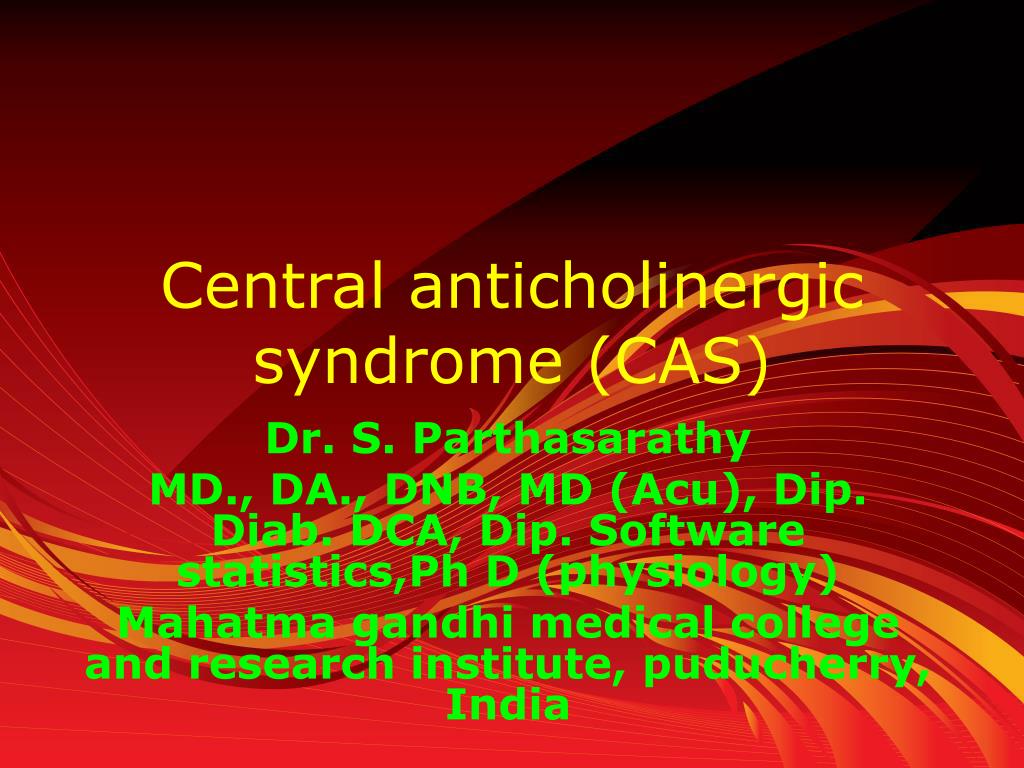


Ppt Central Anticholinergic Syndrome Cas Powerpoint Presentation Free Download Id
There are three major types of anticholinergic drugs including antimuscarinics, ganglionic inhibitors, and neuromuscular inhibitors – the majority being antimuscarinic Anticholinergic drugs are often administered for the treatment of gastrointestinal disorders, respiratory disorders, insomnia, and even motionsicknessSerum anticholinergic activity measures in vitro muscarinic affinity and has been improved to include cholinergic receptor subtypes Carnahan et al 21 described the correlation between the Anticholinergic Drug Scale and serum anticholinergic activity in patients receiving longterm careAnticholinergics are a broad group of medicines that act on the neurotransmitter, acetylcholine They are also called antispasmodics By blocking the action of acetylcholine, anticholinergics prevent impulses from the parasympathetic nervous system from reaching smooth muscle and causing contractions, cramps or spasms
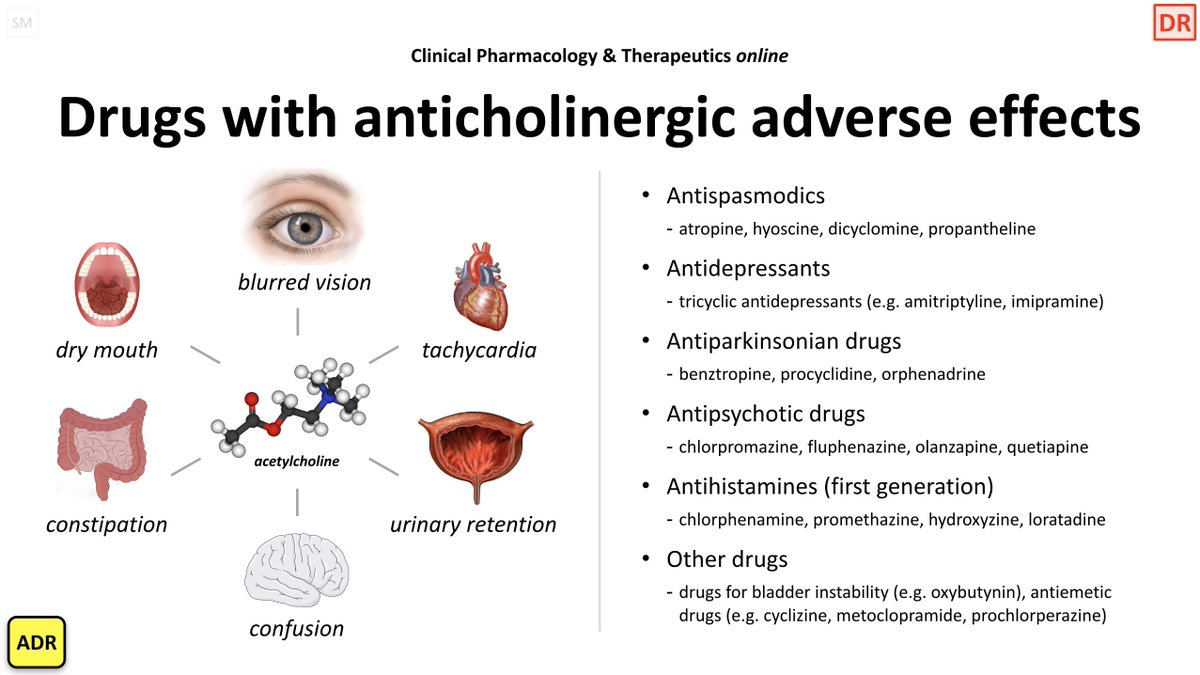


Anticholinergic


Anticholinergic Drugs Linked With Dementia Harvard Health
Anticholinergic drugs work by blocking the effects of acetylcholine, a substance that transmits messages in the nervous system In the brain, acetylcholine is involved in learning and memory In the rest of the body, it stimulates muscle contractionsAnticholinergics are a class of drugs used to treat a wide range of medical conditions, from asthma to the side effects of certain psychiatric medications They are also used to treat some symptoms of Parkinson's disease They can help to decrease the involuntary movement of muscles in your body that are part of the diseaseIn vitro, the rank order of anticholinergic potencies of the antihistamines was cyproheptadine>promethazine>desloratadine>diphenhydramine>loratadine>chlorpheniramine>hydroxyzine>pyrilamine The p values ranged from /04 for cyproheptadine to 48/04 for pyrilamine Fexofenadine and cetirizine (up to 3 x 10 (4) M) were inactive



Anticholinergic Burden Measures Predict Older People S Physical Function And Quality Of Life A Systematic Review Journal Of The American Medical Directors Association



Anticholinergic System And Drugs
The nicotinic anticholinergic mecamylamine, along with other antidepressants (selective serotonin reuptake inhibitors, commonly known as "SSRIs"), has been reported to improve treatmentresistant depression (TRD) according to two PhaseII clinical trials 3) Anesthesia Pancuronium is a muscle relaxant that is sometimes used during anesthesiaAnticholinergic drugs help to contract and relax muscles They work by blocking acetylcholine, a substance that also transmits messages in the nervous system In the study, researchers compared the medical records of 40,770 people older than 65 who were diagnosed with dementia and 2,933 seniors withoutAnticholinergic drugs block the neurotransmitter acetylcholine in the central or peripheral nervous system, and have diverse actions depending on the site Anticholinergic drugs are indicated for depression, gastrointestinal disorders, Parkinson's disease, urinary incontinence, epilepsy, and to manage allergies



Deprescribing Anticholinergic Medications In Schizophrenia Upmc
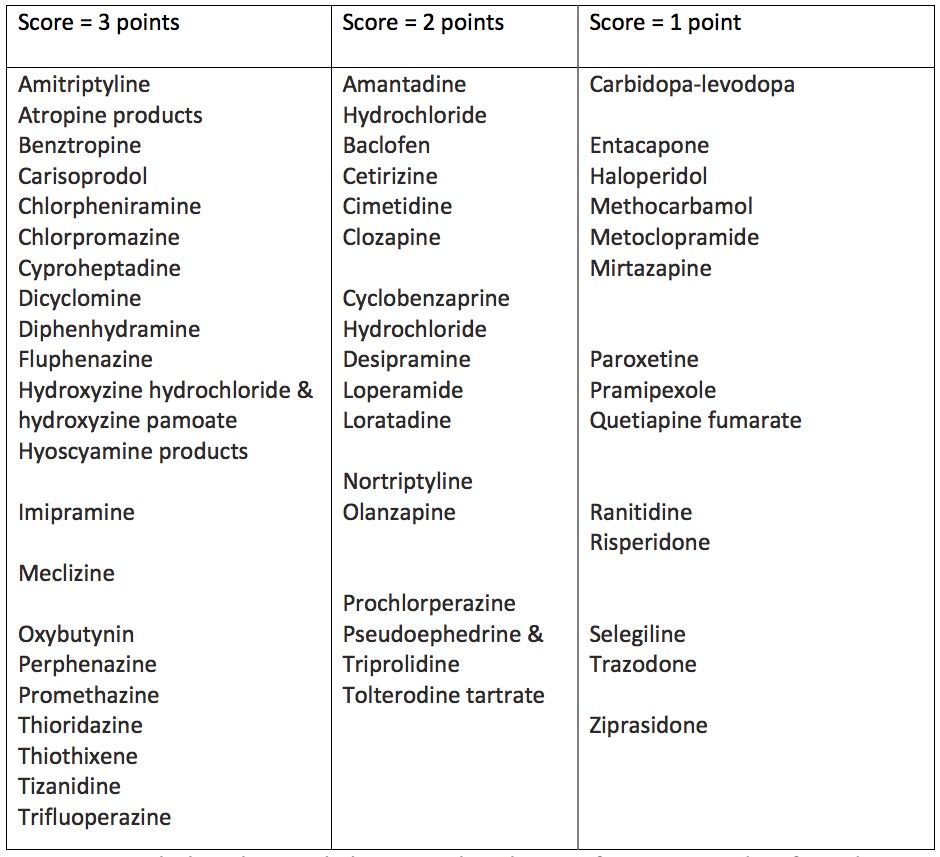


Anticholinergic Burden Assessment And Future Diagnosis Of Dementia
A disorder created by the actions of anticholinergic drugs, which have caused unwanted effects on the central and peripheral nervous systems Symptoms include dry mouth, constipation, ataxia, flushed skin, confusion, disorientation, slurred speech, and memory problems Effects tend to be more severe when the central nervous system is impactedMany drugs commonly prescribed to the elderly have anticholinergic properties Due to the current clinical use of drugs with mildtomodest anticholinergic activity, the clinical manifestations ofThere are numerous medications that have anticholinergic properties It is easiest to remember them by drug classes rather than memorizing each one individually Antidepressants, antihistamines, antipsychotics, and muscle relaxants are all commonly prescribed medications that have anticholinergic effects



Anticholinergic Meds


Association Between Anticholinergic Medication Use And Cognition Brain Metabolism And Brain Atrophy In Cognitively Normal Older Adults Dementia And Cognitive Impairment Jama Neurology Jama Network
Anticholinergic drugs block the action of a chemical messenger — acetylcholine — that sends signals to your brain that trigger abnormal bladder contractions associated with overactive bladder These bladder contractions can make you feel the need to urinate even when your bladder isn't fullAnticholinergics or antimuscarinic drugs, are drugs that competitively inhibit the parasympathetic nervous system ultimately leads to decreased production of secretions in the salivary, bronchial, and gastrointestinal tractsThe mechanism of anticholinergic drugs is to direct blood to your heart, lungs, and brain by inhibiting the parasympathetic nervous system When the signal going to the PNS is blocked or disrupted, the involuntary functions like mucus secretion, salivation, urination, and digestion is decreased significantly



Pharmacology Anticholinergic Neuromuscular Blocking Agents Made Easy Youtube
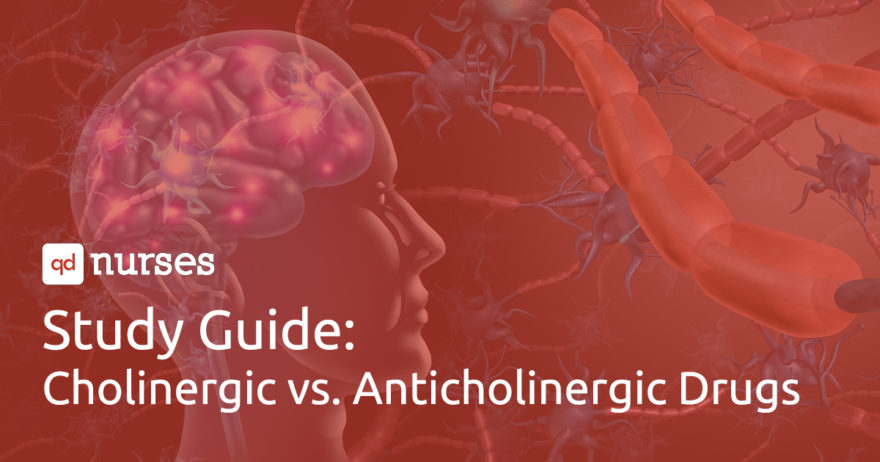


Study Guide Cholinergic Vs Anticholinergic Drugs Qd Nurses
Anticholinergic Agents (Anticholinergic Toxidrome) Concise toxidrome definition Exposure to an anticholinergic chemical may result in under stimulation of cholinergic receptors leading to dilated pupils (mydriasis), decreased sweating, elevated temperature, rapid heart beat, and mentalstatus changes, including characteristic hallucinationsANTICHOLINERGIC DRUGS Anti cholinergic drugs Are those which antagonise the effect of neurotransmitter Acetylcholine (ACh) on autonomic effectors & in the CNS exerted through "Muscarinic receptors"Anticholinergics are a type of medication that blocks the action of a neurotransmitter, a chemical messenger in the brain, called acetylcholine Acetylcholine is responsible for transferring



A Useful Medication Chart For Anticholinergic Effects And A Recent Study For Those Concerned About Cognitive Impairment Of Anticholinergics Hyperhidrosis
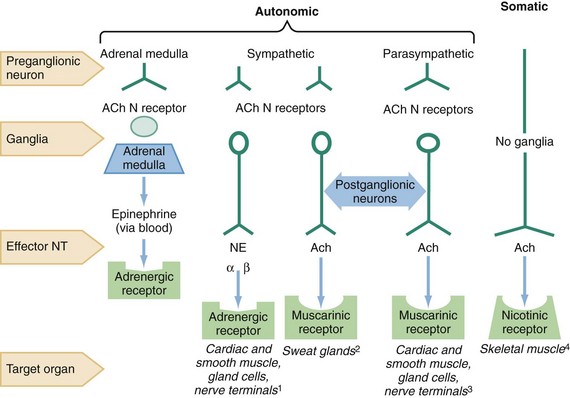


Anticholinergics Anesthesia Key
Anticholinergics are the oldest class of medications to treat PD;Anticholinergic Agents (Anticholinergic Toxidrome) Concise toxidrome definition Exposure to an anticholinergic chemical may result in under stimulation of cholinergic receptors leading to dilated pupils (mydriasis), decreased sweating, elevated temperature, rapid heart beat, and mentalstatus changes, including characteristic hallucinationsThe anticholinergics and antispasmodics are a group of medicines that include the natural belladonna alkaloids (atropine, belladonna, hyoscyamine, and scopolamine) and related products The anticholinergics and antispasmodics are used to relieve cramps or spasms of the stomach, intestines, and bladder



Impact Of Anticholinergics On The Aging Brain A Review And Practical Application Aging Health
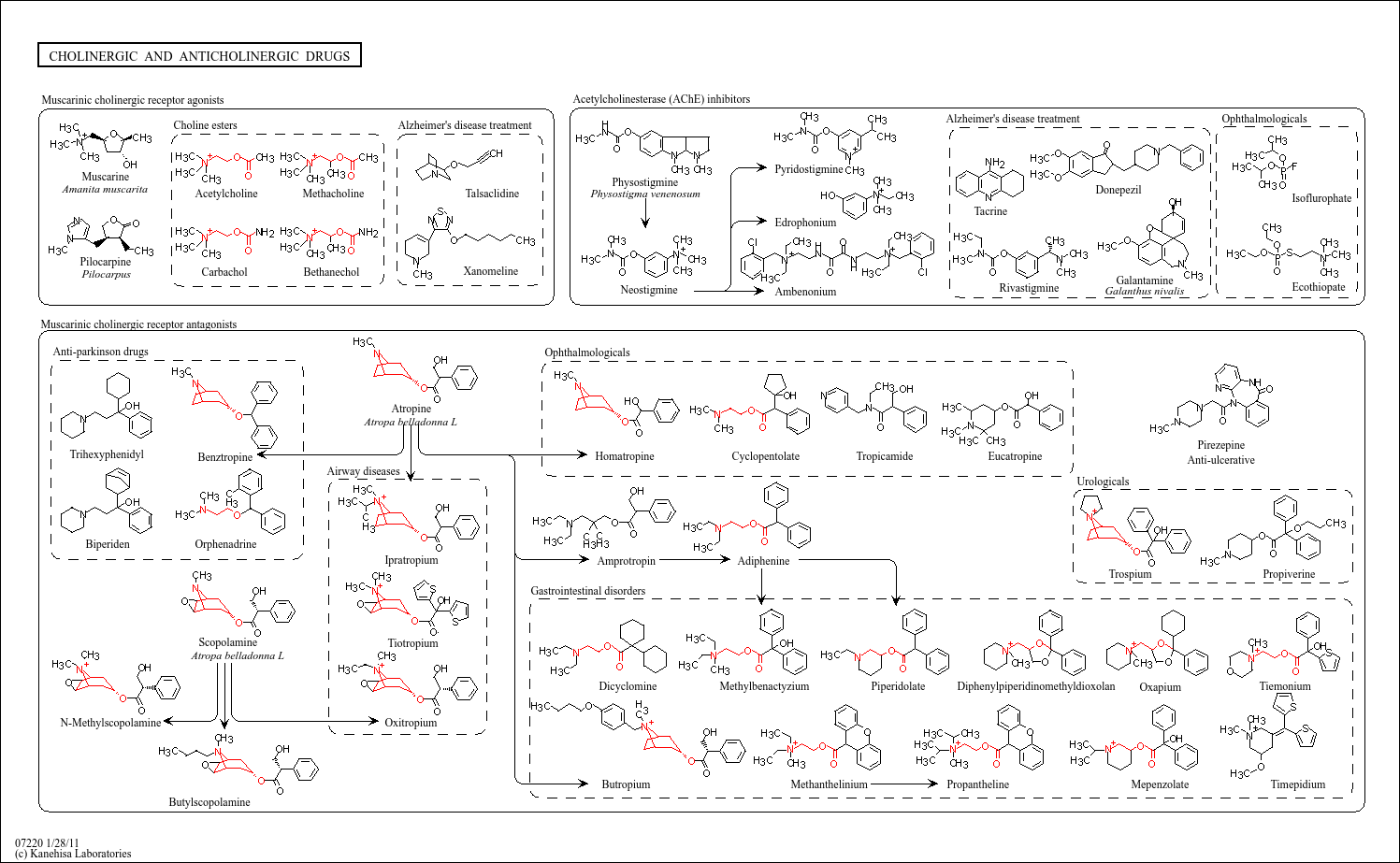


Kegg Pathway Cholinergic And Anticholinergic Drugs Reference Pathway
Anticholinergic medications are a class of drug that block the neurotransmitter acetylcholine in the central and peripheral nervous system They are used to treat a wide variety of conditions associated with activation of the parasympathetic nervous system In dermatology, anticholinergics are used to help control hyperhidrosisAnticholinergic toxicity is common in the emergency department but rarely fatal According to the 15 annual American Association of Poison Control Centers (AAPCC) report, there were just under 14,000 exposures reported to poison control centers that year, none which lead to mortality However, inAnticholinergic Poisoning According to one review, certain anticholinergic drugs — such as atropine — have been reported to cause a variety of potentially toxic sideeffects when administered at dosages exceeding mg However, the most severe sideeffects typically occur at much higher doses, such as 450mg per person For example, uncontrolled or excessive consumption of the plant


Q Tbn And9gcqbv Mllsqqhbrrjiw7vsiqkrw svcmyzkluphwoofcn Agri Usqp Cau
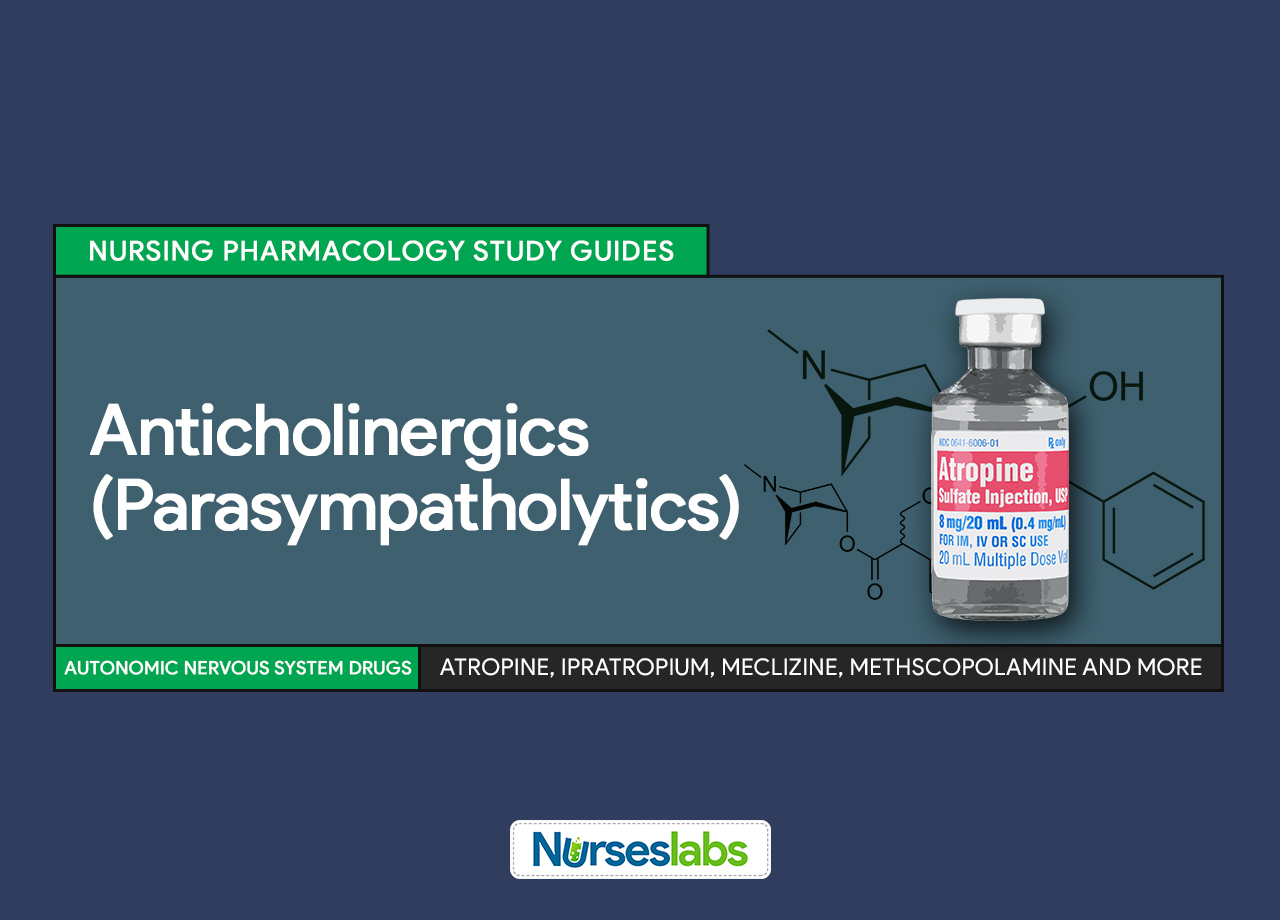


Anticholinergics Parasympatholytics Nursing Pharmacology Study Guide
Gray said that anticholinergic drugs work by blocking a natural chemical in the brain, acetylcholine "Acetylcholine is a neurotransmitter that is important for memory and learning, but it is alsoWe determined the relative rank orders of anticholinergic potencies of 10 antihistamines in two functional bioassays (1) an in vitro assay measuring inhibition of carbacholinduced contractions of isolated guinea pig trachealis muscle, (2) an in vivo bioassay comparing systemic hypotensive responses to bolus iv injections of acetylcholine before and after infusions of an antihistamine inAnticholinergic drugs block the action of a neurotransmitter called acetylcholine This inhibits nerve impulses responsible for involuntary muscle movements and various bodily functions These


What Are The Types Of Anticholinergic Drugs Quora



Pharmacological Management Anticholinergic Agents Obgyn Key
Anticholinergics (anticholinergic agent) are a group of substances that blocks the action of the neurotransmitter called acetylcholine (ACh) at synapses in the central and peripheral nervous system These agents inhibit the parasympathetic nervous system by selectively blocking the binding of ACh to its receptor in nerve cellsThe nerve fibers of the parasympathetic system are responsible forWhat is an anticholinergic medication?Anticholinergic drugs are often prescribed to treat OAB These drugs work by relaxing your bladder muscles They also help prevent urine leaks by controlling bladder spasms Most of these drugs


Anticholinergic Side Effects In The Elderly Pharmacy Network Services



Anticholinergic Poisoning Sketchbook Md
Anticholinergics Anticholinergics are used for pupil dilation and to treat irritable bowel syndrome, peptic ulcers, Parkinson's disease, allergic rhinitis, COPD, salivation, nausea, and motion sickness They work by relaxing certain muscles in the body to control spasms Why are Anticholinergics prescribed?" Anticholinergics " refers to a family of drugs and other compounds that block the activity of the neurotransmitter acetylcholine In general, these compounds work by binding to many of the same receptors throughout the body and brain that acetylcholine naturally activates, thereby preventing ("blocking") its normal effects 1, 2



Anticholinergic Drug Burden And Delirium A Systematic Review Journal Of The American Medical Directors Association



Side Effects Of Anticholinergic Drugs In Amyotrophic Lateral Sclerosis Download Table



Anticholinergic Syndrome Presentations Etiological Agents Differential Diagnosis And Treatment Consultant360


Q Tbn And9gcqtqqgpwgclsxpj7qe35ptpiifkdwrr2 Uxuipilf3ugj3posnv Usqp Cau



Anticholinergics Archives Med Ed 101
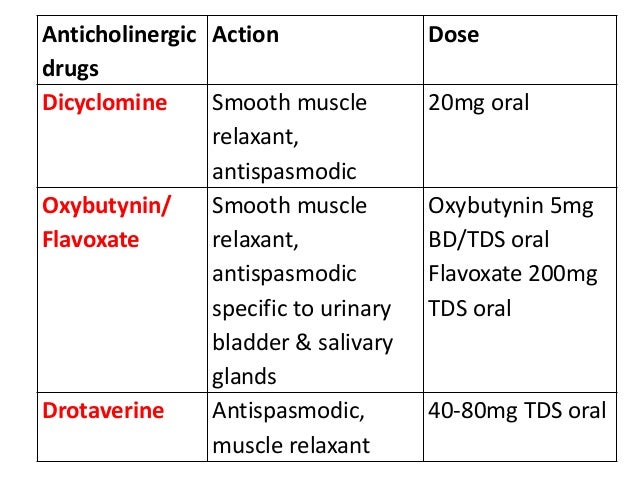


Anticholinergic System And Drugs



T4td Anticholinergics Multiple Sclerosis Research Blog
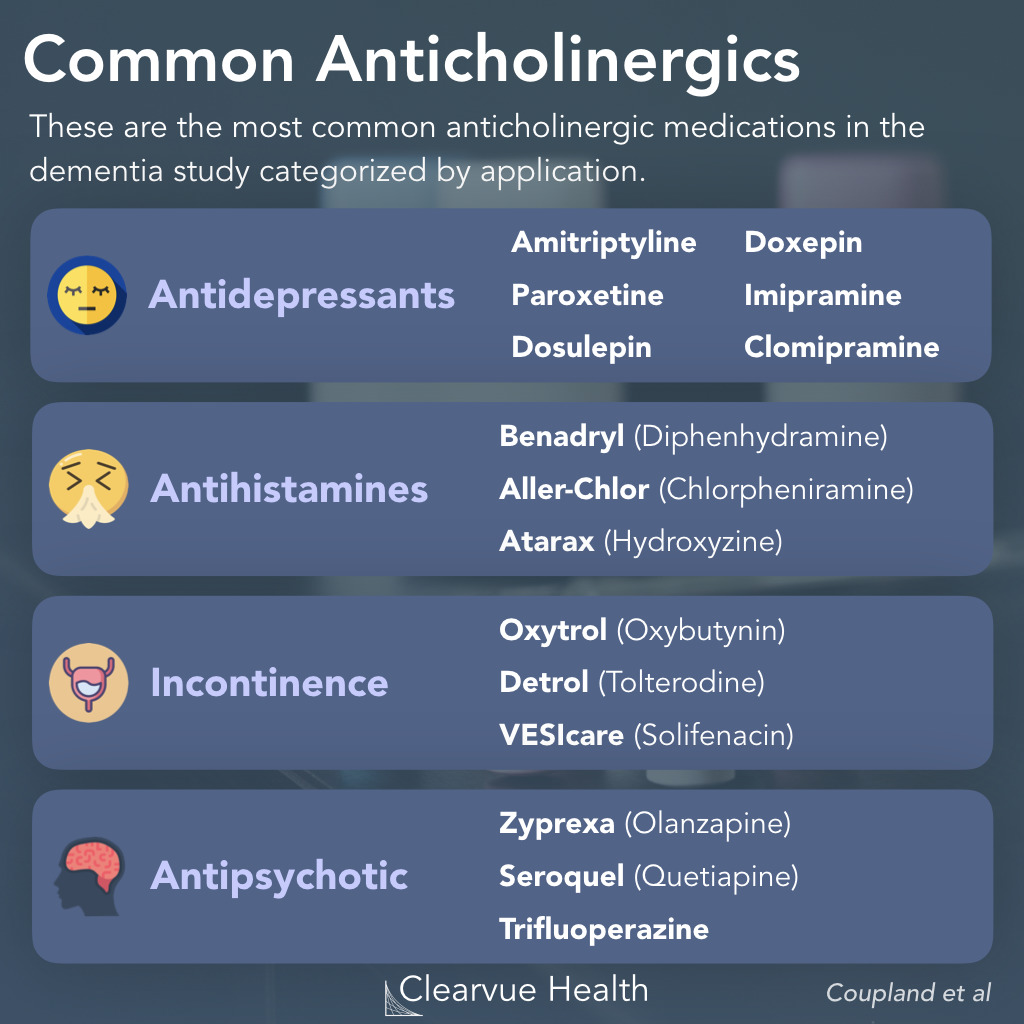


3 Charts Medications Dementia Risk Visualized Science
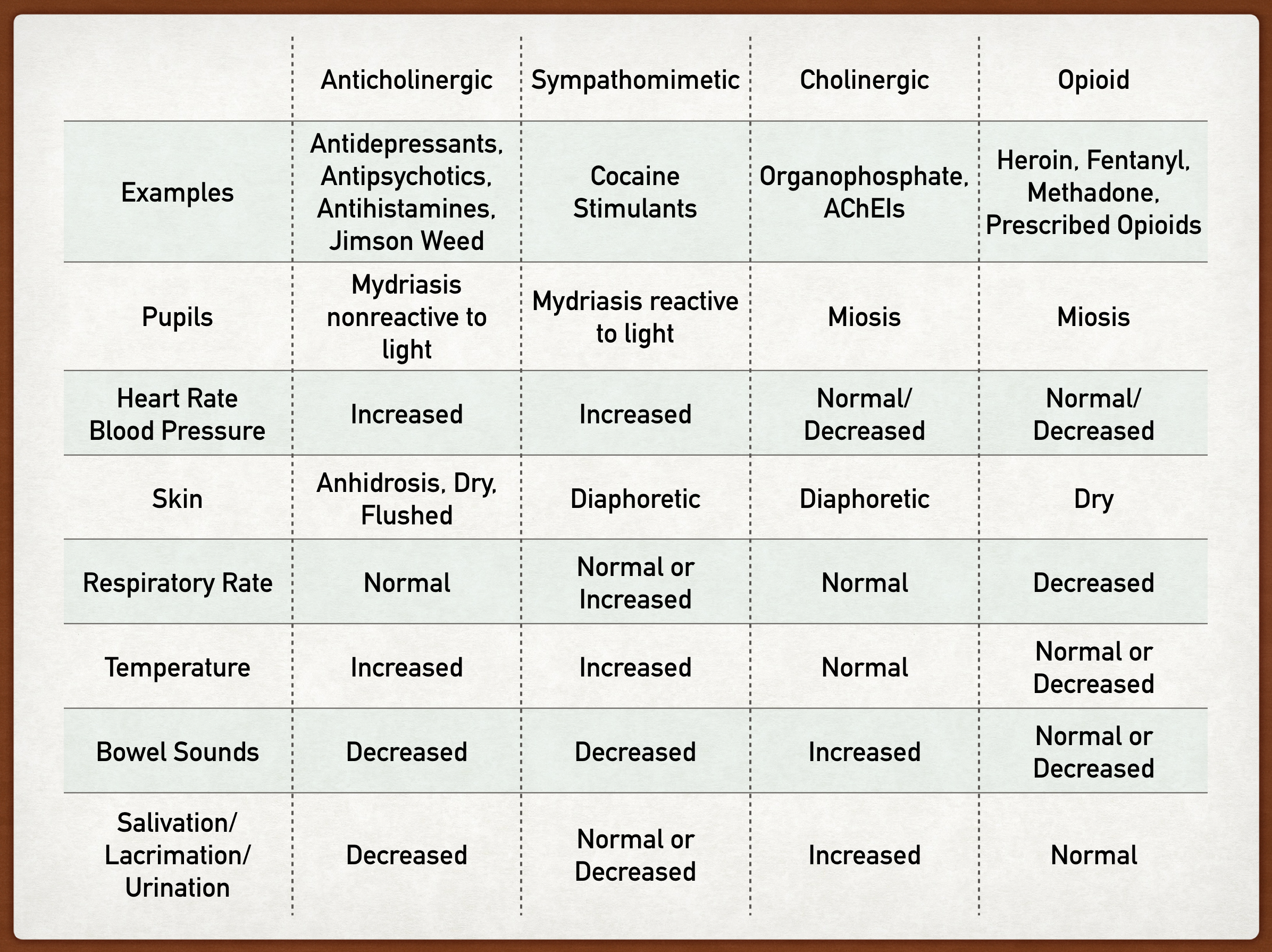


Anticholinergic Drug Toxicity Syndrome Symptoms Causes Treatment Medication Effects For Usmle Ezmed



Anticholinergic Mnemonic Sketchy Medicine



Pdf The Anticholinergic Risk Scale And Anticholinergic Adverse Effects In Older Persons Semantic Scholar
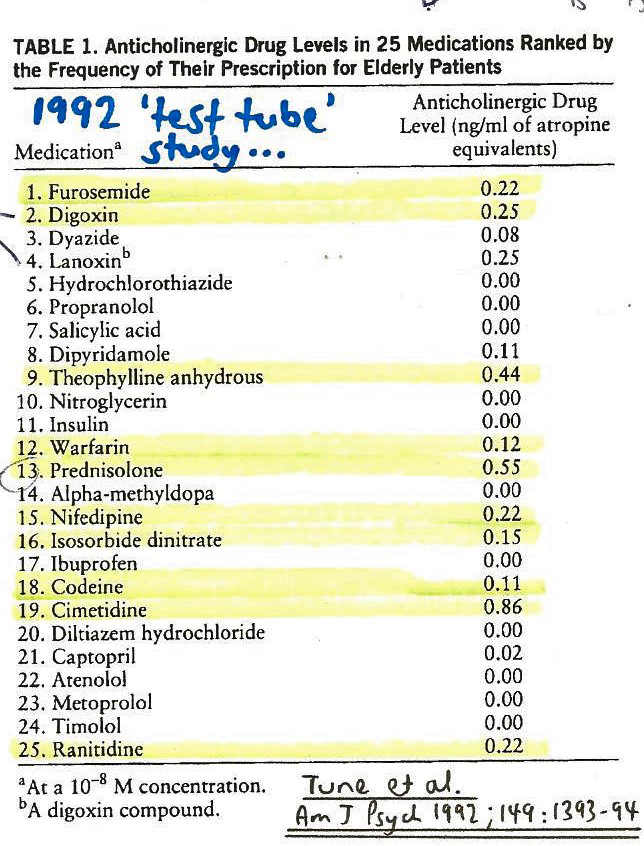


Troubled Reality Of Anticholinergic Burden Scales Insight



Anticholinergic Properties Of Medications And Their Adverse Side Effects Pharmacist Expert Withness Dr William Simonson



Benjamin Terrier Hidden Anticholinergics In Elderly Patients What Where And How By Sara Thietart Thietarts Fellow In Geriatry Paris France Elderly Anticholinergic Adverseevent Internistacademy 19 T Co Ecqzlls0vg
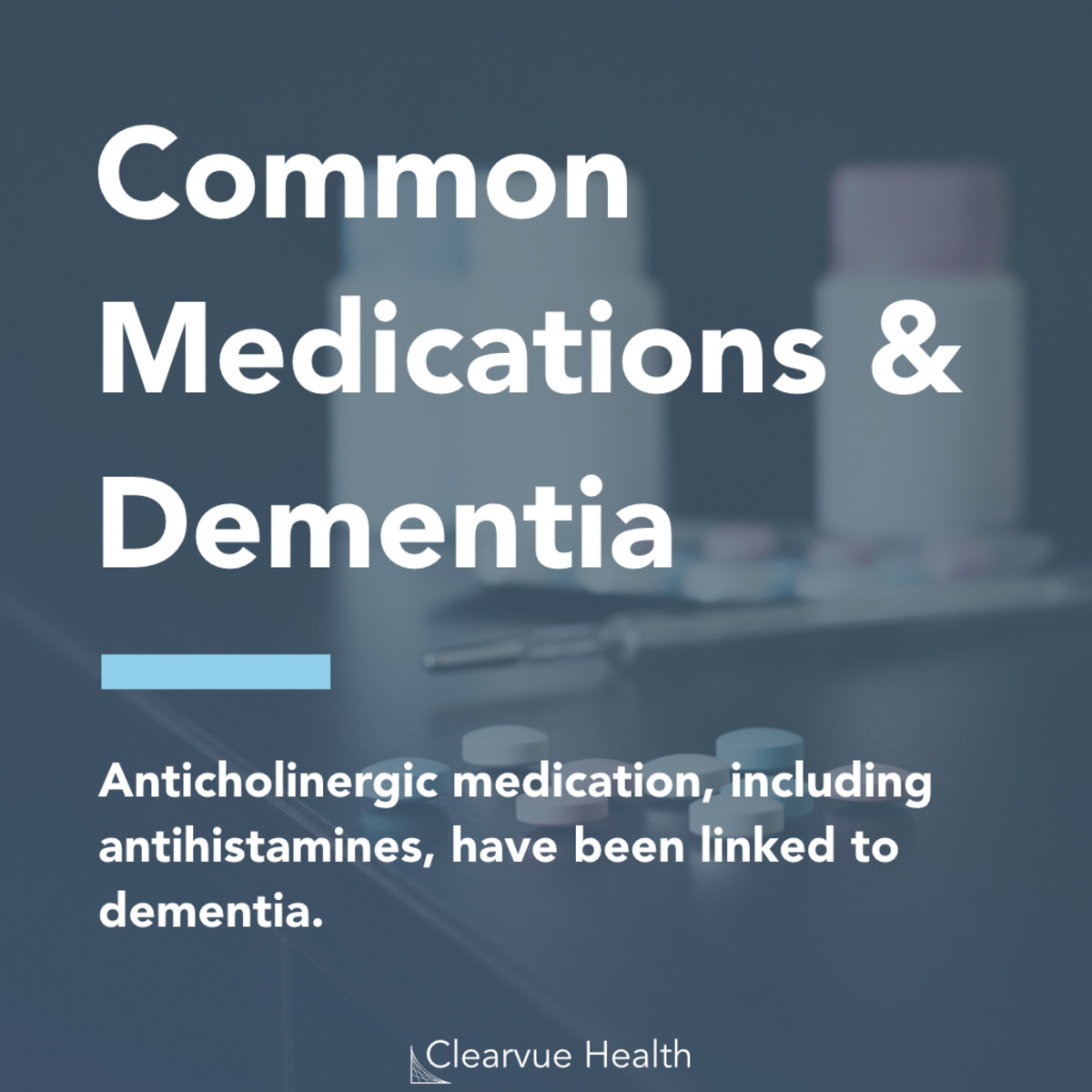


3 Charts Medications Dementia Risk Visualized Science
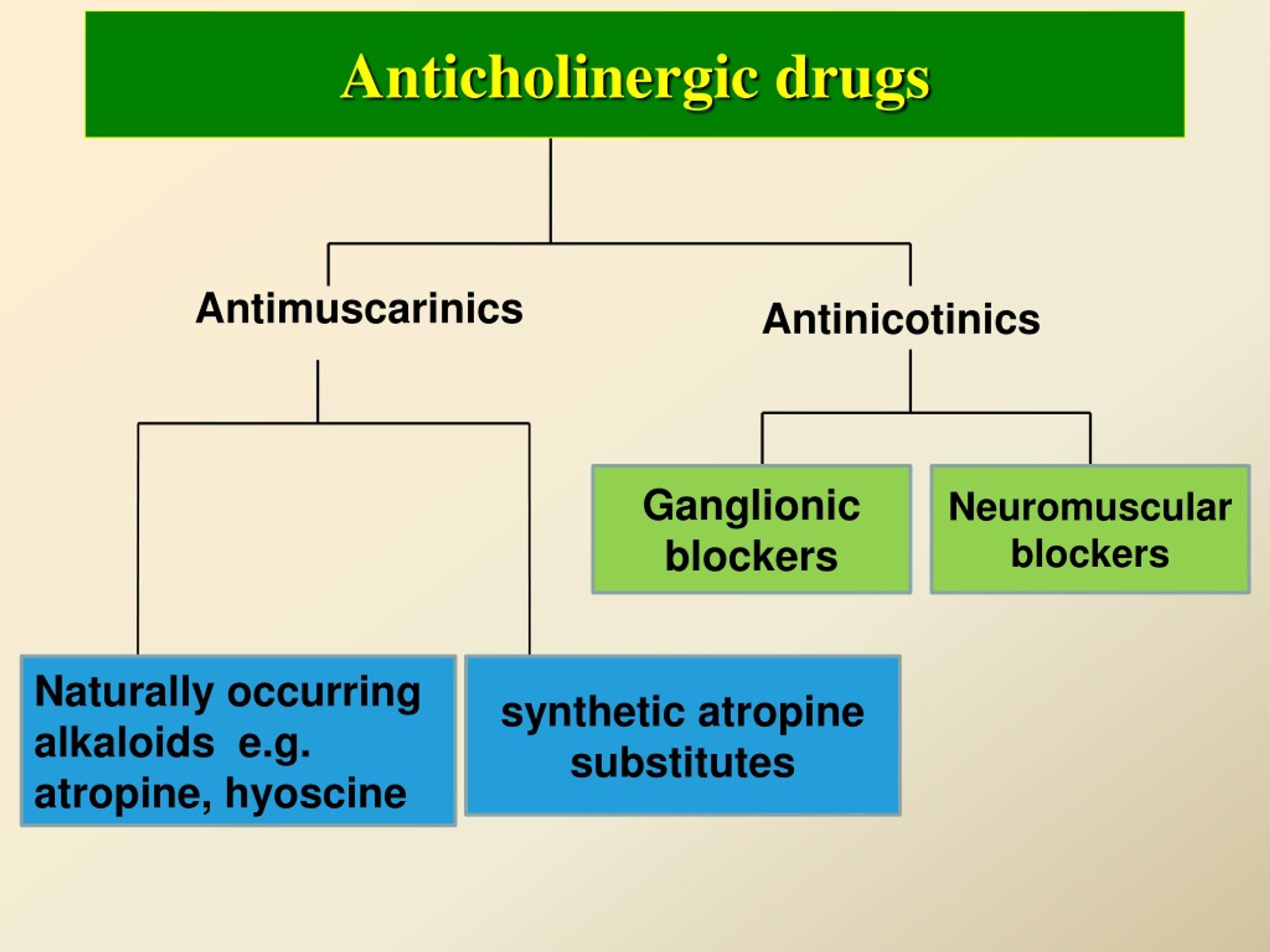


Ppt Anticholinergic Drugs Powerpoint Presentation Free Download Id
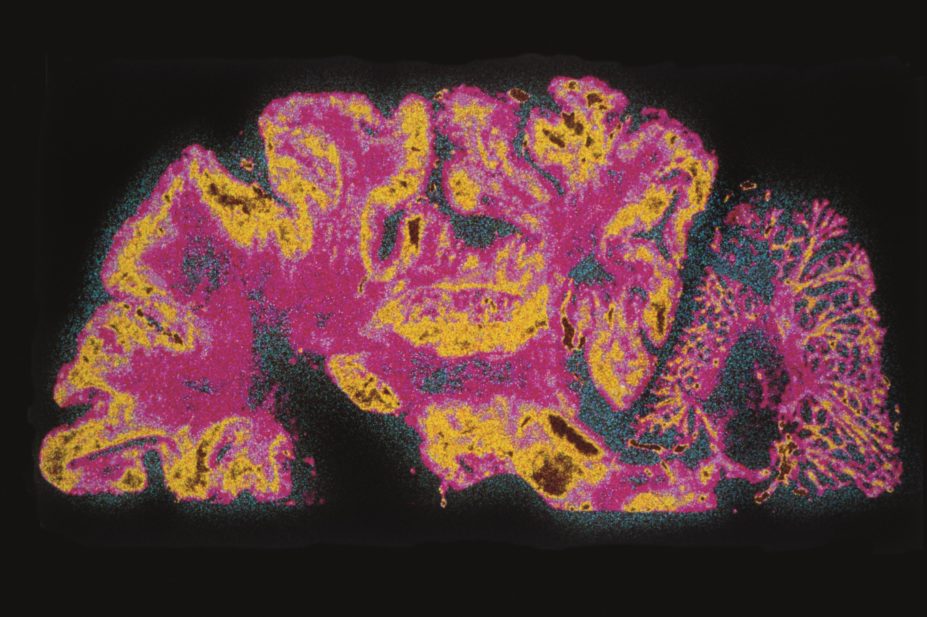


Avoid Anticholinergics In Parkinson S Say Researchers Despite Study Findings The Pharmaceutical Journal



Anticholinergic Drugs For Adult Neurogenic Detrusor Overactivity A Systematic Review And Meta Analysis European Urology



Anticholinergic Drugs Uses And Side Effects



Drugs With Anticholinergic Actions Anticholinergic Grepmed


Everything You May Need To Know About Anticholinergic Drugs And Parkinson S Disease Parkinson Secrets Treatment Tips For Patients Caregivers Parkinsonsecrets Com



Difference Between Cholinergic And Anticholinergic Compare The Difference Between Similar Terms
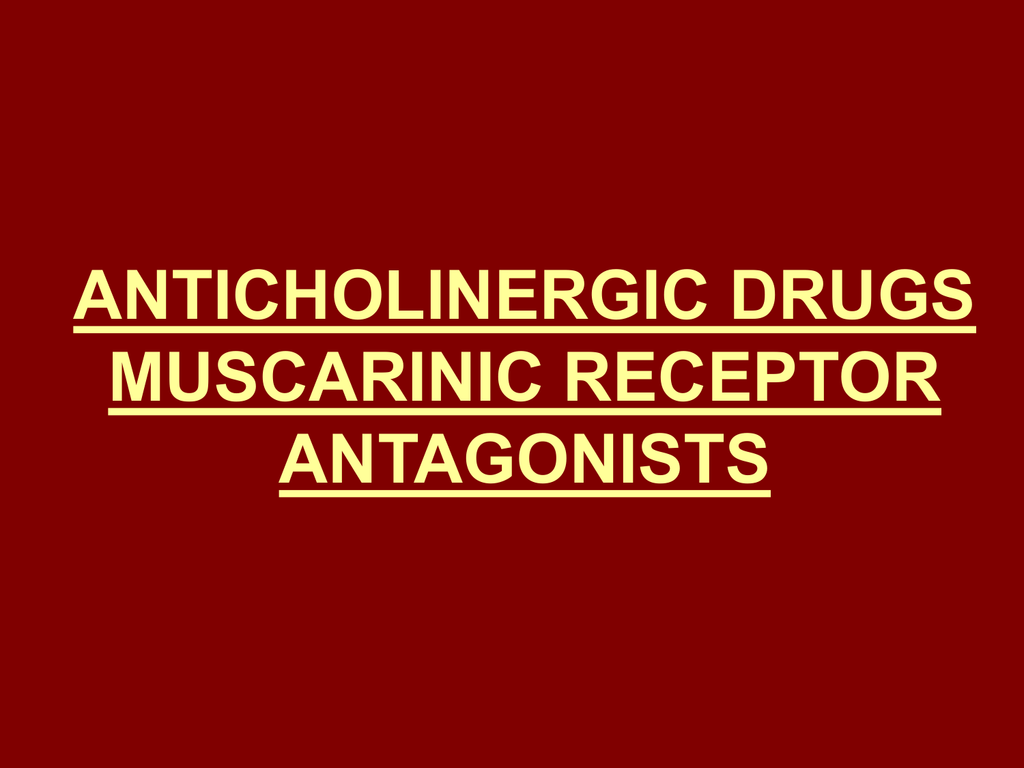


Anticholinergic Drugs



Association Of Anticholinergic Medications And Ad Biomarkers With Incidence Of Mci Among Cognitively Normal Older Adults Neurology



Cholinergic And Anticholinergic Pharmacology For Nursing Students Youtube
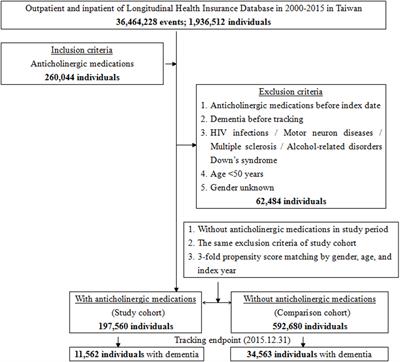


Frontiers Are Anticholinergic Medications Associated With Increased Risk Of Dementia And Behavioral And Psychological Symptoms Of Dementia A Nationwide 15 Year Follow Up Cohort Study In Taiwan Pharmacology



Several Anticholinergic Activity Medicines Download Table
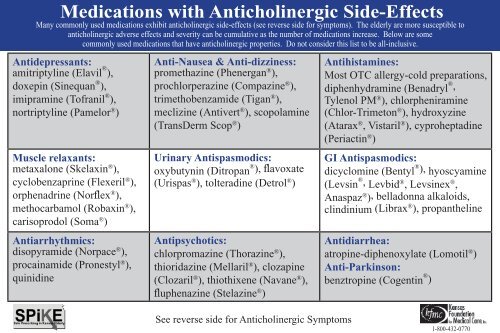


Medications With Anticholinergic Side Effects Kansas Foundation
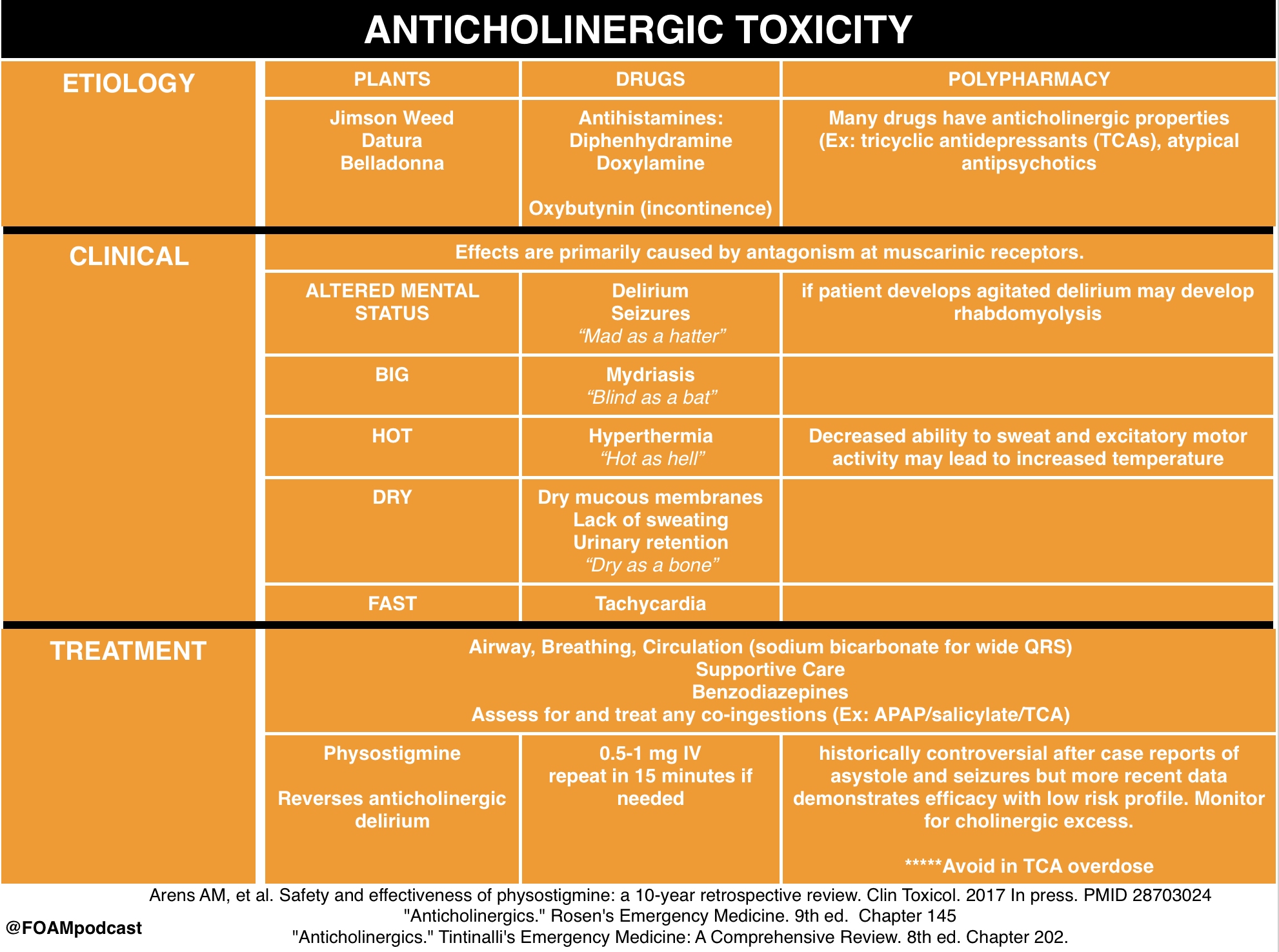


Episode 74 Physostigmine And Anticholinergic Toxidrome Foamcast



List Of Anticholinergic Drugs Used By Study Participants All Drugs Had Download Table



Anticholinergic Drugs For Overactive Bladder A Review Of The Literature And Practical Guide Munjuluri 07 The Obstetrician Amp Gynaecologist Wiley Online Library



Anticholinergic Versus Cholinergic Effects On The Body Pharmacology Grepmed
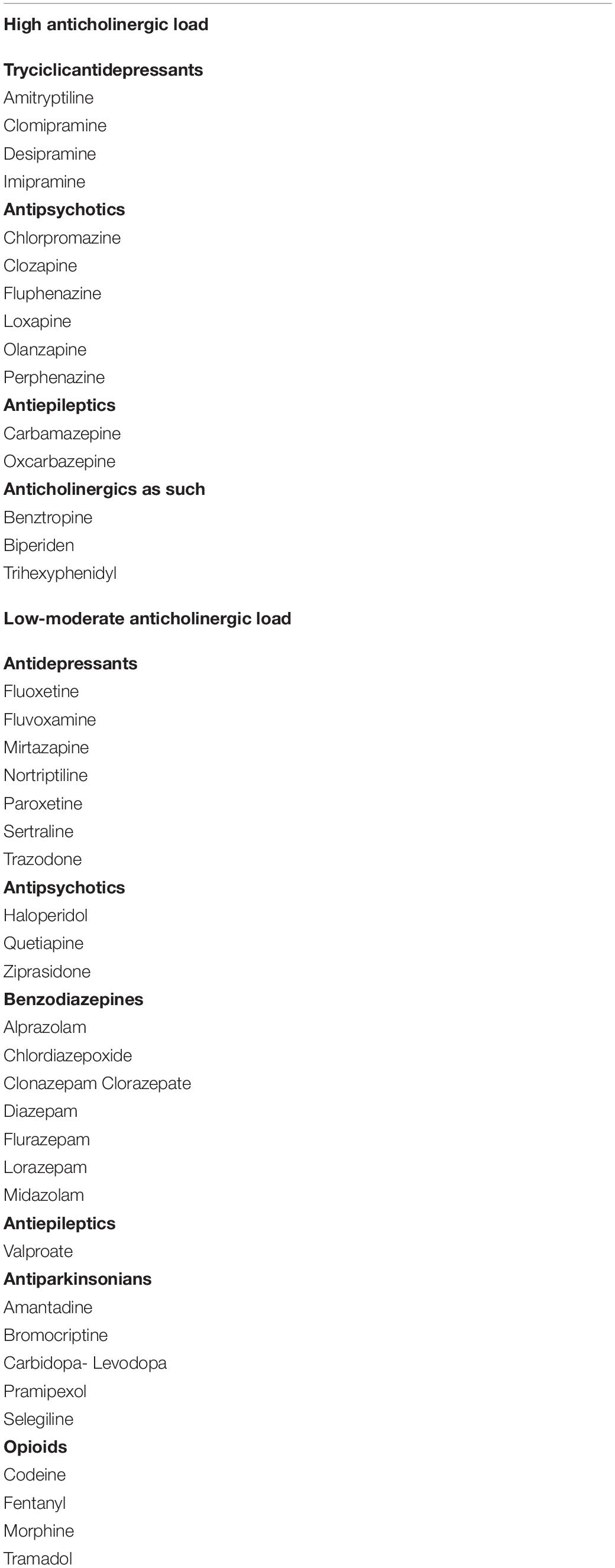


Frontiers Anticholinergic Drugs In Geriatric Psychopharmacology Neuroscience



Anticholinergic Medications May Increase Dementia Risk By 50 Being Patient
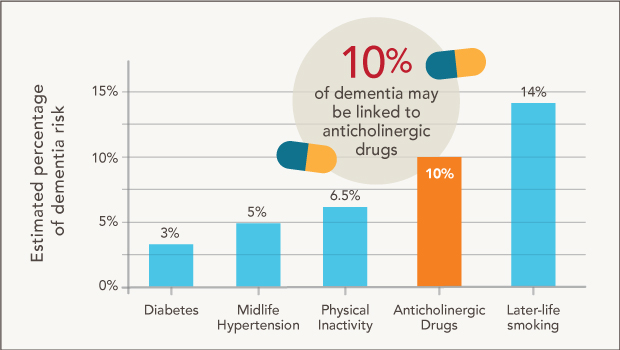


Could Deprescribing Anticholinergic Drugs Prevent Dementia



Full Text Comparative Analysis Of Anticholinergics Prescribed To Elderly Patient Cia



Alzheimer S Dementia Weekly Beware Of Common Anticholinergic Drugs
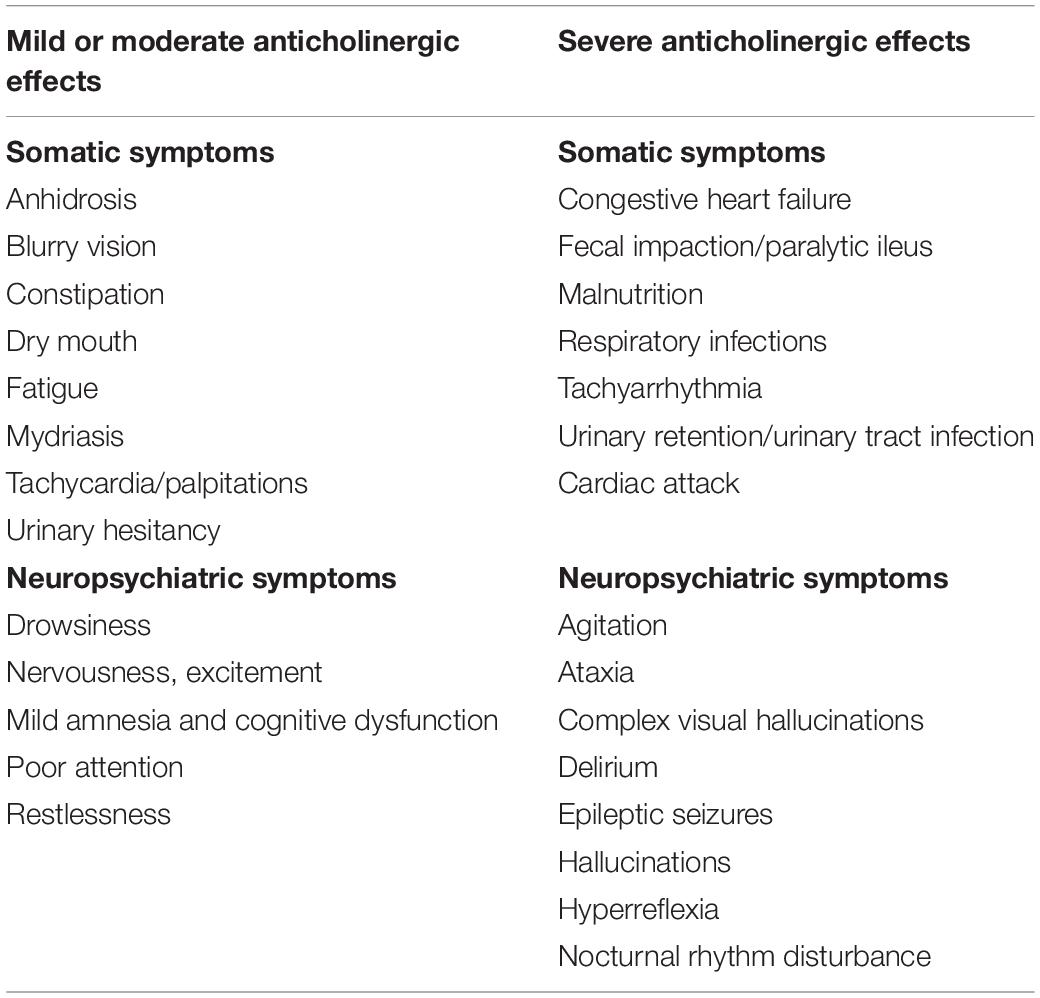


Frontiers Anticholinergic Drugs In Geriatric Psychopharmacology Neuroscience



Anticholinergic Drugs Dr S Parthasarathy Md Da Dnb Powerpoint Presentation Free Online Download Ppt Zsxose



Anticholinergic Drug Use Linked To Dementia Years Before Diagnosis Nutrition Review



Pin On Nurse In The Making



Comparison Of Risk Of Neurovascular And Cardiovascular Side Effects Between Tiotropium And Other Anticholinergic Agents Insight Medical Publishing



The Mode Of Action Of Anticholinergics In Asthma European Respiratory Society



Anticholinergic Medication Use In Patients With Alzheimer S Dementia Results From A Romanian Longitudinal Study Semantic Scholar


Side Effects Of Anticholinergic Drugs


Q Tbn And9gcrn0lvxhhnigkeayblopiuaeb2pyu Q5mpu8dg2jvy4oikser1c Usqp Cau



Pdf Anticholinergic Burden Considerations For Older Adults
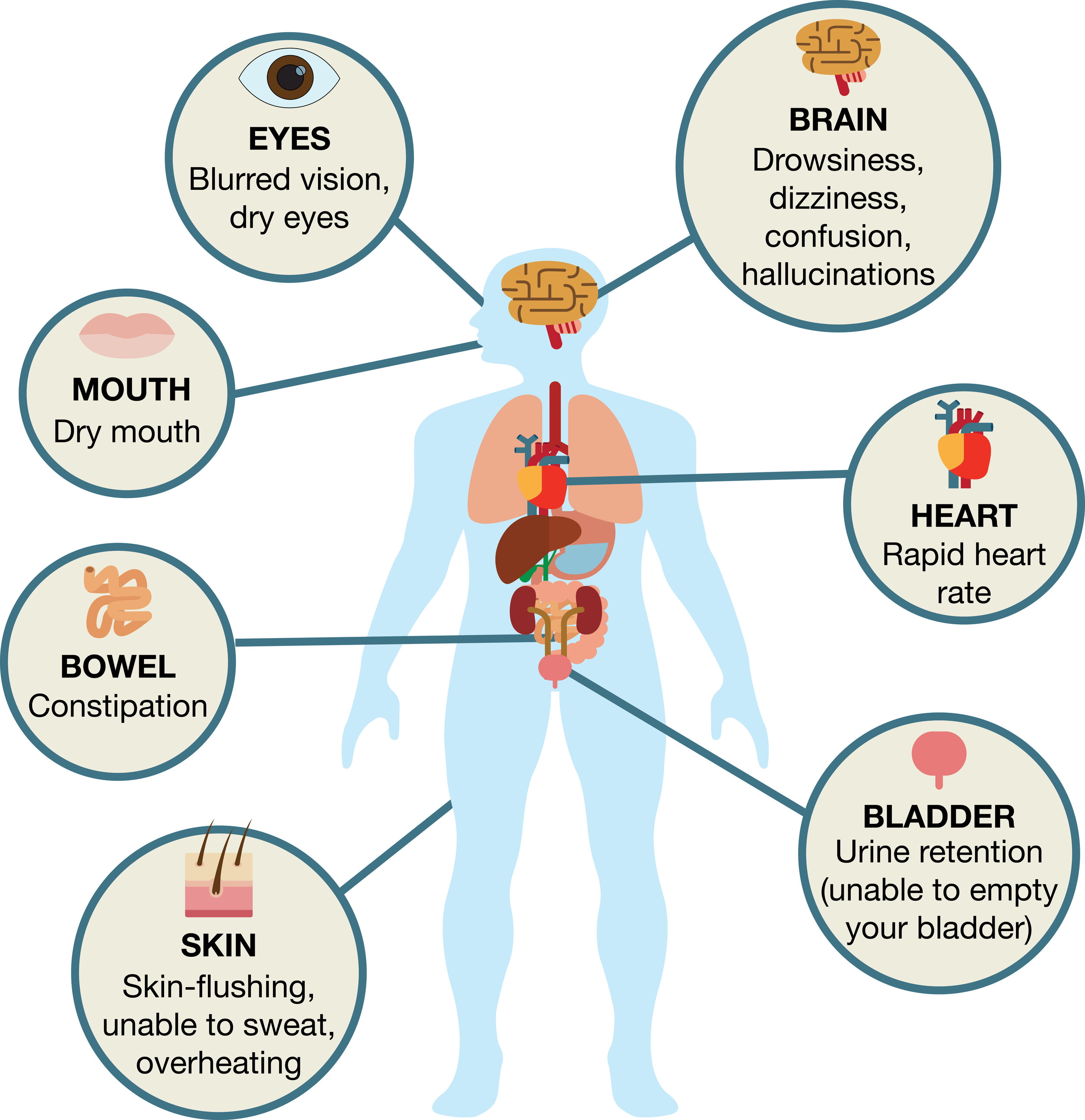


Anticholinergic Medications Do I Still Need This Medication Is Deprescribing For You


1
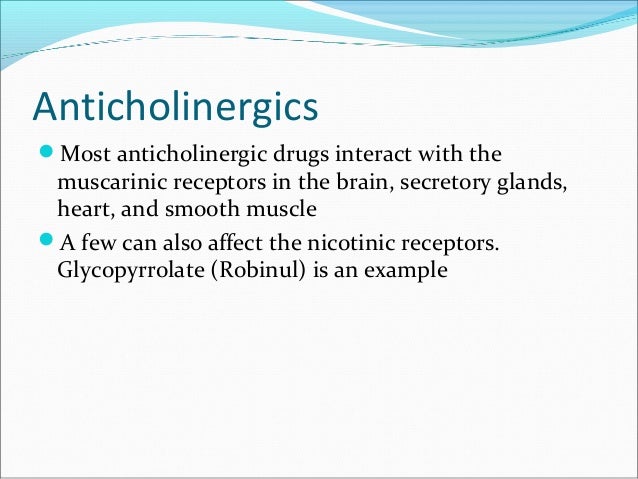


Anticholinergics



Anticholinergic Drugs Pharmacology Daily Classification Youtube



Rapid Review Anticholinergic Toxidrome Roshreview Com



Anticholinergic Drugs And Dementia



Alzheimer S Dementia Weekly Beware Of Common Anticholinergic Drugs


Consultantpharmacist Com Blog Anticholinergic Burden
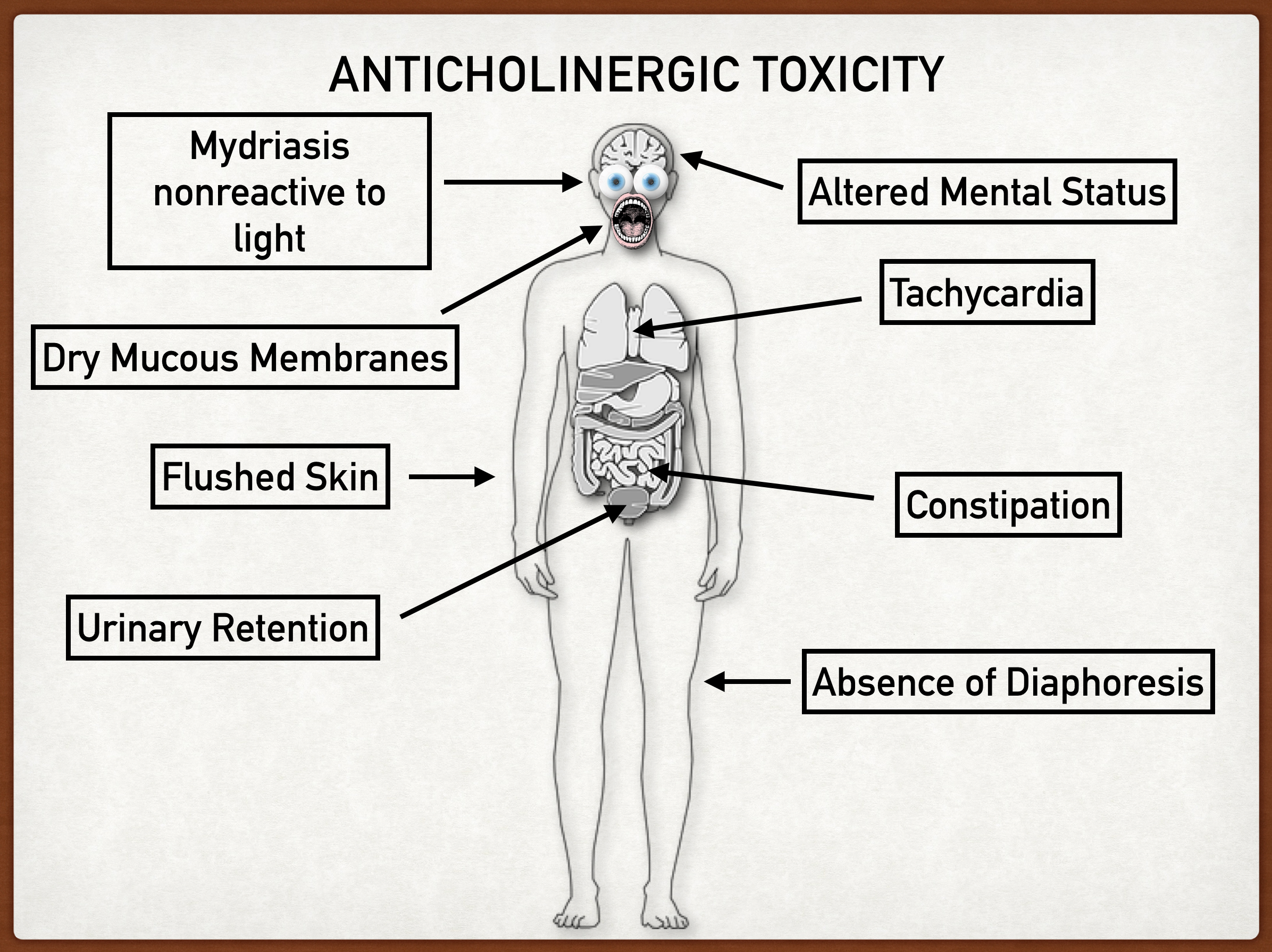


Anticholinergic Drug Toxicity Syndrome Symptoms Causes Treatment Medication Effects For Usmle Ezmed



Anticholinergic Drugs Diagram Quizlet



Mental Health Managing Side Effects Part 1 Medicines Learning Portal


Emdocs Net Emergency Medicine Educationtoxcards Sympathomimetic Vs Anticholinergic Toxidromes Emdocs Net Emergency Medicine Education


Applicability Of Anticholinergic Risk Scale In Hospitalized Elderly Persons



T4td Anticholinergics Multiple Sclerosis Research Blog
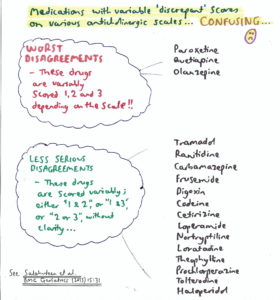


Troubled Reality Of Anticholinergic Burden Scales Insight



Anticholinergic Drug Exposure At Intensive Care Unit Admission Affects The Occurrence Of Delirium A Prospective Cohort Study European Journal Of Internal Medicine



Anticholinergic Medications Linked To Dementia Epr



Common Allergy Drugs May Raise Dementia Risk



Pin By Suzanne Gramlich On Nursing Inspired Nurse Teaching Pharmacology Nursing Nurse Life



List Of Anticholinergic Drugs Used By Study Participants All Drugs Had Download Table



Anticholinergic Syndrome Presentations Etiological Agents Differential Diagnosis And Treatment Consultant360



1 Anticholinergic Drugs Muscarinic Antagonists Antimuscarinic Agents Part 1 Youtube
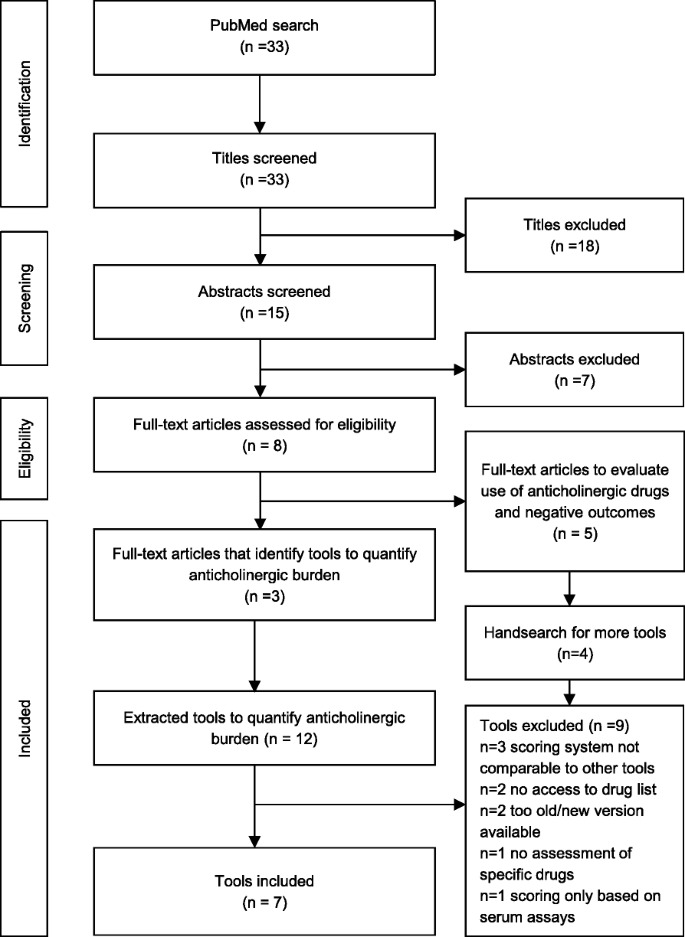


An Anticholinergic Burden Score For German Prescribers Score Development Bmc Geriatrics Full Text



Anticholinergic Drugs Ppt Download


Anticholinergic Drugs Causing Post Renal Failure
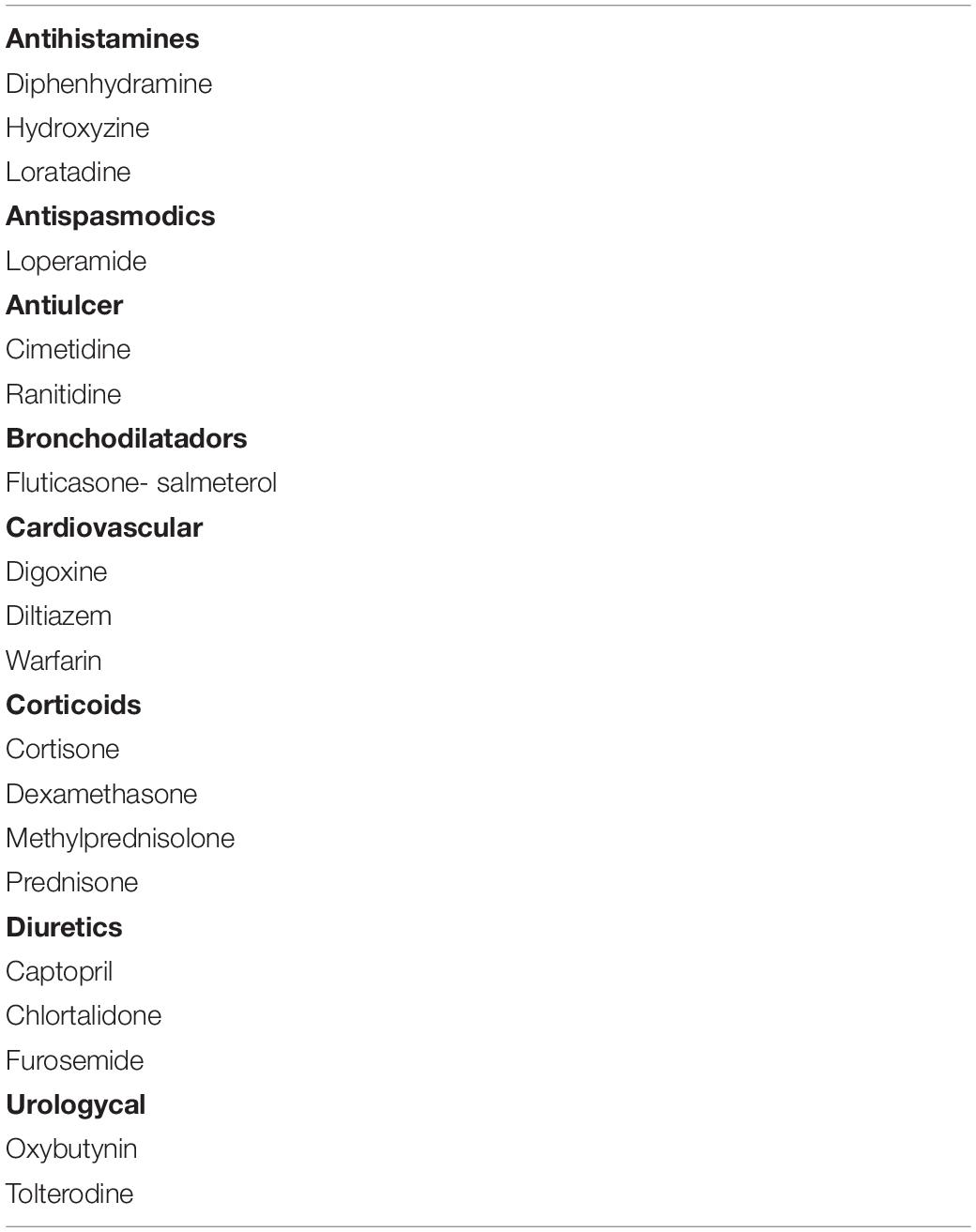


Frontiers Anticholinergic Drugs In Geriatric Psychopharmacology Neuroscience


Plos One Anticholinergic Burden In Adult And Elderly People With Intellectual Disabilities Results From An Italian Multicenter Cross Sectional Study



Pdf Anticholinergic Burden In Schizophrenia And Ability To Benefit From Psychosocial Treatment Programmes A 3 Year Prospective Cohort Study Semantic Scholar



Anticholinergic Drugs Anticholinergic Effects Anticholinergic Side Effects



Anticholinergic Neura Library



Anticholinergic Syndrome Presentations Etiological Agents Differential Diagnosis And Treatment Consultant360



Anticholinergic Drugs For Overactive Bladder A Review Of The Literature And Practical Guide Munjuluri 07 The Obstetrician Amp Gynaecologist Wiley Online Library
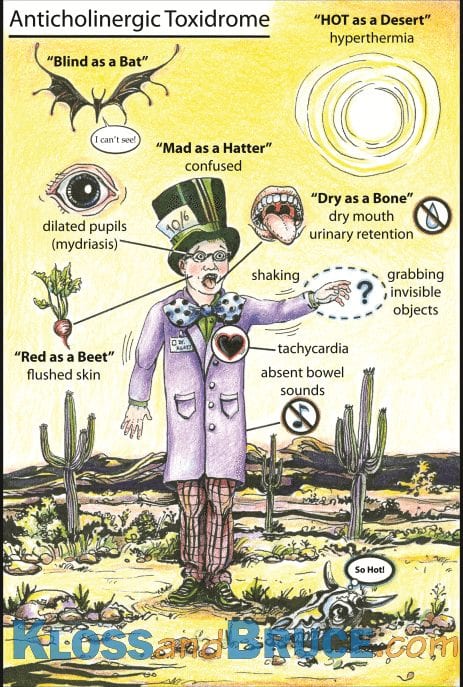


Anticholinergic Toxidrome Litfl Toxicology Flashcard Library


コメント
コメントを投稿